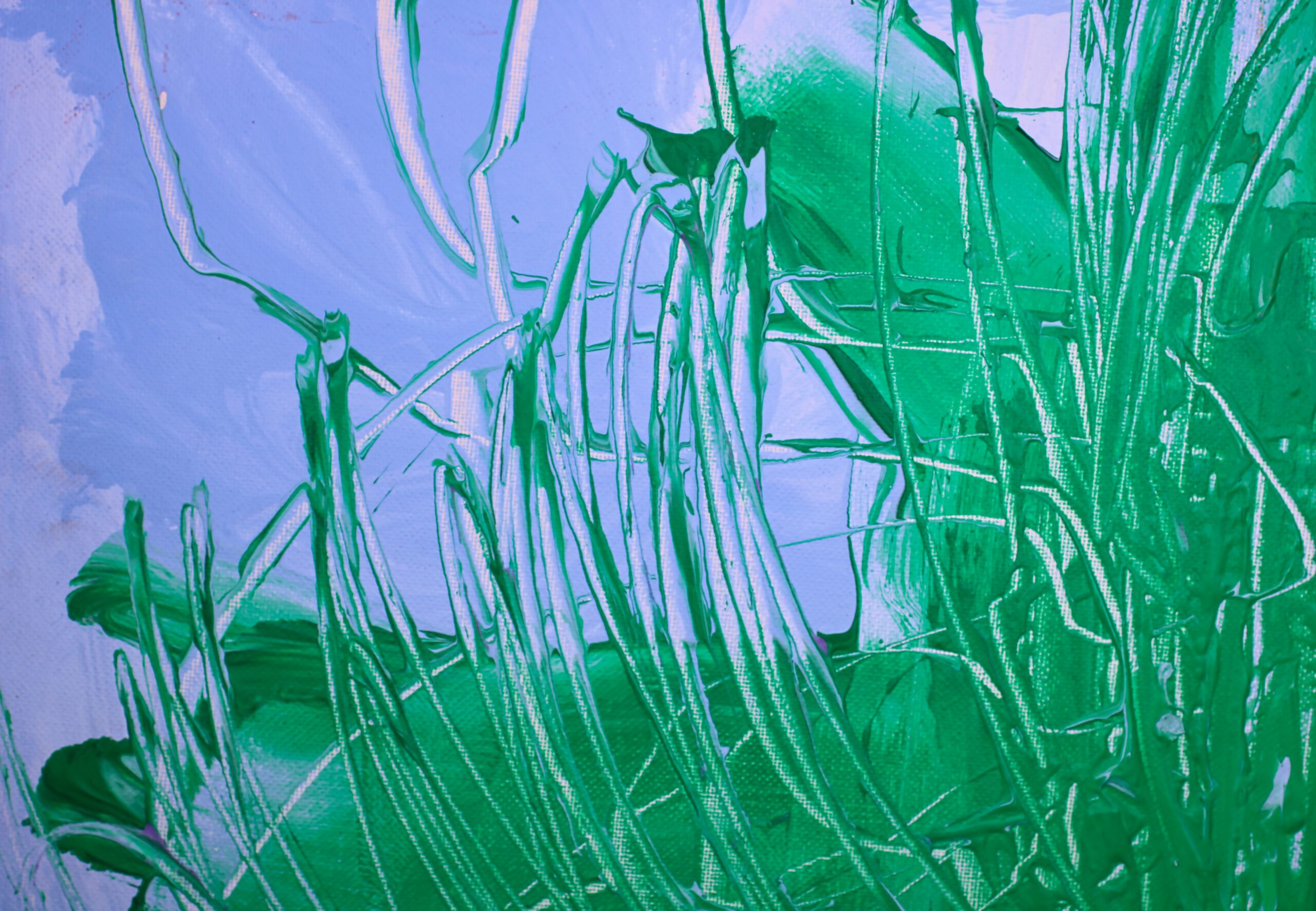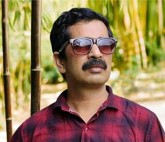TRANSLATED FROM THE ASSAMESE BY HARSITA HIYA

Image Used for Representation
In the beginning God created the heavens and then the earth and Downtown…
Genesis 1:1
It was as tall as a high-rise building. As luminous as God. As cold as death. A large signboard hung there, beyond which were many paths to take and towering mountains to climb. There were countless lights, stars and endless forests. Even a postal address for all the letters arriving from strange, faraway places. It was the place we all went to, leaving behind every worldly illusion.
“Yes, yes, Downtown. Indeed, Downtown.” We would often, unprompted, exclaim in conversations. We had all heard of it. Some quite recently, while others in the olden days.
Downtown was there. It had been there since antiquity. Perhaps these uncertain times, seemingly old yet modern, had first emerged in Downtown itself. When nothingness was all there was to be found, then too did Downtown lie somewhere asleep— a reserve of history clinging to memories.
“I live in Downtown.” We all claimed, or “In Downtown I shall always live.”, knowing well there was nothing new in saying that. Downtown was as much a fact of nature as night and day, as winter and summer. When taking the bus, we would often cross Downtown. Sometimes we would make our way across its front and at others, the back. We could, if we wanted, move through, above, and below it as well. We believed it was the best place. A place where we could, eagerly and impatiently, await the arrival of the one we love, forever looking at our watches. There might have been times when we had wandered about in every direction of Downtown bearing wedding invites. Some other day, a speeding auto rickshaw might have stopped in pouring rain with the driver leaning out, brusquely and loudly declaring that he would not travel any further than Downtown. That Downtown was his final stop.
No wonder then, that we found ourselves lamenting how distant Downtown was. Yet we, at the same time, felt it was close enough. Quite close indeed. We had always been near Downtown without even knowing it, or Downtown had been near us all along. Downtown, like an eternal truth, was as close as faraway. As far as just round the corner.
Like a freshly painted house during the festive season, Downtown stood shining. There were innumerable lights here, vibrant and blindingly bright, their glow extending to the horizon. There were fairs all year long, circuses, theatres, and music. Protests, processions, curfews, and firing. All sorts of crooked dealings went on undisturbed in Downtown. There were wide footpaths full of crowds— tourists and pilgrims, beggars and hawkers, police and pickpockets, prostitutes and lustful men. Leaflets floated across Downtown like air itself, carrying, as if it were critical news— effective cures for venereal diseases, easy ways to make money at home, and, among other things, new cars available at zero percent interest.
In the evenings, when the mood allowed for it, everyone came out to Downtown for hot potato chops with glasses of tea. People smoked. Some did marijuana, while others stood behind stalls sipping from whiskey bottles.
That was Downtown, and that was the truth. Everything true was Downtown, and Downtown the only thing beyond the truth.
Downtown, for us all, was the culmination of something. Maybe the beginning or the end of our limits. Our greatest triumph or folly. The ultimate experience of knowledge or ignorance. It was why we all carried the spirit of Downtown within us. A spirit as heavy as the betaal— that chatty ghoul of the famous Indian legend— lugged around by King Vikramaditya. A spirit that had possibly given birth to all feelings of fear and devotion in our hearts. That had brought into being both love and disgust. Some were thrilled to have any opportunity to head into Downtown. The hearts of others were filled with loathing at the very idea.
We all loved Downtown as much as we despised it. Whenever we walked past it, we did so as we crossed our hearts. “Forgive me!” We whispered, praying sincerely. “Have mercy on me, O Great Downtown!”
Downtown, like youth, was a whirlwind. Rebellious teenagers carried pictures of it in their lockets. Beautiful young girls got colourful tattoos of it by their navels. At the same time it was, in the manner of an ancient tradition, untainted. Wise ones wrote books about its greatness, selling them to everyone they knew. And so Downtown remained illuminated in tales thousands of years old.
We had many complaints against Downtown, yet we loved it like a secret admirer. “In Downtown I was ruined.” We would say, only to admit in the same breath—”In Downtown, I recovered everything I had squandered.” Through all we had lost, and recovered after losing, we formed an enduring bond with Downtown. In Downtown, we all parted ways. In Downtown, we were at last reunited.
In this way, slowly but surely, time passed. Days rolled by. So did months and years. Winter came to Downtown with snowfall and summer arrived with rain. Winds, sunshine and moonlight enveloped Downtown. A film of antiquity covered everything like dust, leaving our dreams of the future in pieces. Yet Downtown remained, unmoved like a wise, content hermit. Unspoiled like a thousand year old historical shrine.
Down Downtown’s sloping back descended many sheep. White clouds drifted in from faraway Meghalaya, clinging on to its green peaks. During the Christmas holidays, we all went there for picnics. Through scenes as these did many new stories of Downtown unfold— some as violent as war, some as rousing as festival nights. They amazed us, leaving us gaping at Downtown. The shadow of Downtown spread across our faces. It spread across our empty lives, growing like an afternoon silhouette wanting to melt into the horizon.
And yet, to this day, none of us could fathom that there was no salvation from the all-consuming Downtown. No one could flee and escape it, for Downtown was everywhere, presiding in its glory.
With great care, the many branches of Downtown fanned out as new units. Around these units— each a large building— emerged highways and sewers. Roadside hotels and restaurants. Offices, photocopy stalls, public phone booths, wine shops and auto stands too. Pulse Polio posters and cinema hoardings pervaded Downtown, and as the days went by so did our homes, before we even realised it. Sleepless nights in the bedroom, melancholic moments in the verandah, and private telephone conversations weren’t spared either. Nor were the flower tubs in the front yard and the barking of dogs in chains. Perhaps that is why we still couldn’t tell— was everything in Downtown, or Downtown in everything?
Every morning, we left Downtown and headed into Downtown. When the evening arrived, we bid Downtown goodbye, only to return to Downtown. From distant addresses in Downtown, our loved ones sent us urgent letters, and we went to bed dreaming of Downtown on happy days.
Even the beliefs and traditions guiding our lives had been bestowed upon us by Downtown. All the running trains carried the mark of Downtown, so did every airplane in the sky, a sky that belong to Downtown alone. Downtown had its own currency, which we all borrowed from the banks of Downtown. Downtown also had distinct postage stamps, ATMs and ration cards. It had its own language. Songs and newspapers in that language as well. In the official language of Downtown, we conversed with each other. “Downtown, Downtown?” We asked. “Downtown. Ah! Downtown.” We uttered in answer.
Our thoughts and feelings, ideals and beliefs were simple and real like Downtown. We sincerely believed that Downtown was the ultimate truth. That it was unique and unrivalled. Nothing lay beyond and behind it. Nothing could equal it either. And so, within everyone we wanted to establish a sort of Downtownism. Travelling saints of nations foreign and familiar preached Downtownism, discovering like everyone else, that this too was in fact Downtownism already playing out.
To this day, none of us really knew this place where roads kept surfacing with bridges and lifts and staircases. Where tracks meandered as they led up, then down, and then up again, turning left and right afterwards. Where paths from every direction—be it east, west, north or south, happened to merge. Slowly, obliviously, we lost ourselves in this whorl of countless roads resembling a mysterious orb. Tourists and travellers who came from far away ascended in the lifts, fading secretly into the vacuum. At night, Downtown glistened like a honeycomb. Appearing as larvae within the combs, the faces of people twitched and squirmed at their windows, betraying hope and despair. Revealing loss and triumph.
“Look! Look how inexplicably Downtown expands!” One of us might have exclaimed to ourselves some day, as if making a sudden discovery. For here, entire households did pack their bags and leave. Cranes and bulldozers demolished dreams nurtured with care in old buildings, and Downtown grew, taking over the empty space. Just like the inevitable expansion of our minds. It grew in length and breadth like termite mounds and leaves. Like the womb of a pregnant woman. Like vitiligo, discretely as ever. Even in their hearts and minds, the people made room for a steadily growing Downtown, much like one step aside for oncoming cars.
Downtown had everything one needed, we claimed. It had bus stops, banks, offices, police stations and courts nearby. It had good schools, colleges, and hospitals. Vegetable markets, local fish, and awfully cheap meat. Tailors, salons, washer people, and cobblers were easily available. So were good tutors and part-time maids. It even had black market gas and places to buy stolen goods. Deer and tortoise meat could also be picked up in Downtown, along with fake passports and alcohol on dry days.
And so we believed that Downtown was great, and that everything great was Downtown. We all wanted, and sincerely hoped, for permanent addresses in Downtown. “Could we secure land here?” We asked. “Somewhere close to 150 sq. yards? Maybe in the outskirts?”
Like those who came before us, we then answered— “There is no longer any land in Downtown. If there once was, it is Downtown already.”
Downtown, in this manner, kept expanding, disappearing in its expansion.
Some day, when our dispirited hearts would want to leave all worldly pleasures behind, we would traverse an unending path through Downtown, arriving at last in Downtown itself— the place that inspired in us endless curiosity and great desires of fulfilment. Even then, we couldn’t quite tell— Were we all Downtown, or did in Downtown reside our consciousness?
Eventually, we all would leave Downtown for Downtown. Trying to find its limits, we would grow desperate and fight each other, quarrelling over its water, land and skies. For we wanted Downtown to be immortal, its essence disseminated everywhere. Wanting so was our drug, a drug that left us restless for the smell and touch of Downtown. Like addicts, we felt our eyes burning, hands shivering, and tongues drying up. Exasperation took hold of us. We were all ready to tear down everything for the sake of Downtown. What we wanted to tear down was Downtown, and nothing else.
Also, read Golden Moments and Other Poems by Nasera Sharma, translated from the Hindi by Moulinath Goswami, published in The Antonym:
Follow The Antonym’s Facebook page and Instagram account for more content and exciting updates.



























0 Comments